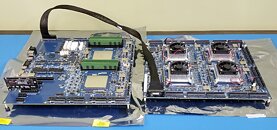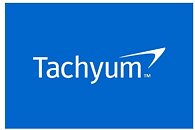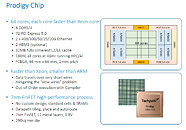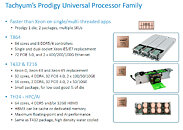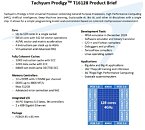Tachyum Unveils 20 Exa-FLOP and 10 AI Zetta-FLOP Supercomputer Design
Tachyum today published a new white paper presenting HPC and AI supercomputer data center designs using the Prodigy Universal Processor Family, Prodigy and Prodigy 2. Tachyum Prodigy 2 was selected by Important Project of Common European Interests (IPCEI) program for Slovakia to deliver exa-scale HPC and zetta-scale AI for Europe. European Commission has accepted the funding gap of 26.4 million EUR for Tachyum, which is currently in the notification process.
Developed by Tachyum's systems, solutions, and software engineering teams, these reference designs transform data centers into universal computing centers in which HPC and AI workloads can run on the same architecture. Tachyum has developed thorough data center designs incorporating state-of-the-art solutions for computing, networking, storage, software, and cooling to address the next generation of HPC/AI applications.
Developed by Tachyum's systems, solutions, and software engineering teams, these reference designs transform data centers into universal computing centers in which HPC and AI workloads can run on the same architecture. Tachyum has developed thorough data center designs incorporating state-of-the-art solutions for computing, networking, storage, software, and cooling to address the next generation of HPC/AI applications.



